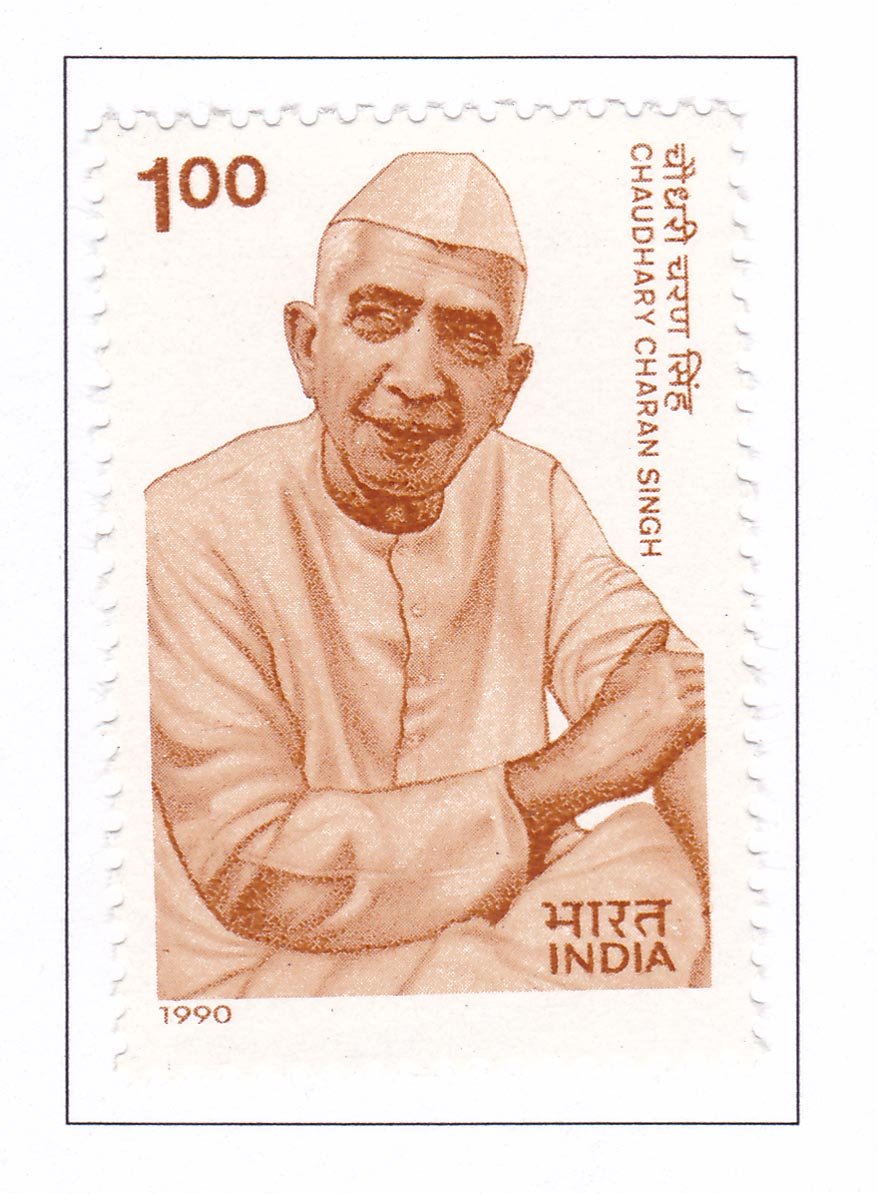Chaudhary Charan Singh

Technical Data
| Date of Issue | May 29, 1990 |
|---|---|
| Denomination | Rs. 1 |
| Quantity | 1,000,000 |
| Perforation | Comb 13 |
| Printer | Security Printing Press, Nashik |
| Watermark | No Watermark |
| Colors | Orange brown |
| Catalog Codes |
Michel IN 1255 Stamp Number IN 1314 Yvert et Tellier IN 1057 Stanley Gibbons IN 1406 |
| Themes | Anniversaries and Jubilees | Famous people | Headgear | Men | Politicians |
Chaudhary Charan Singh, a prominent figure in Indian politics, made significant contributions throughout his career. Here’s a summary of his life and achievements:
Early Life and Education:
- Born on December 23, 1902, in Noorpur village, Hapur Tehsil, Meerut, to Chaudhary Meer Singh and Smt. Netri Debi.
- He excelled academically, completing his schooling in Meerut and obtaining a postgraduate degree in History from Agra University in 1925, followed by a Law degree in 1926.
Political Career Beginnings:
- Started his political journey in Ghaziabad, where he formed the Congress Committee in 1929.
- From 1929 to 1939, he served as the General Secretary of the Ghaziabad District Congress Committee, and from 1939 to 1946, he held the same positions in the Meerut District Congress Committee.
- Elected to the UP Vidhan Sabha from Baghpat Ghaziabad Constituency in 1937 and 1938.
Struggles and Achievements:
- Participated actively in the freedom movement, enduring imprisonment in 1930 and 1940 during various Satyagraha movements.
- In 1942, responded to Mahatma Gandhi’s call for action by organizing revolutionaries in Meerut.
Ministerial and Chief Ministerial Roles:
- Started his ministerial career in 1948 in the Pant Ministry as Sabha Sachiv, handling the Ministry of Justice and Information.
- Notably, he championed the Zamindari Abolition Bill and Consolidation Statute in Uttar Pradesh, benefiting landless farmers and marginalized communities.
- Became the Chief Minister of UP twice, first in 1967 and again in 1970, highlighting his political acumen and support base.
National Leadership:
- Played a crucial role in national politics, merging his Bhartiya Lok Dal with the Janata Party during the Emergency period.
- Elected to the Lok Sabha in 1977, he served as the Home Minister and later as Deputy Prime Minister and Finance Minister in the Janata Government.
- Became Prime Minister of India from July 1979 to January 1980, leading a coalition government.
Legacy and Contributions:
- Known for his advocacy for the poor and marginalized, fighting against social injustices like casteism.
- Followed Gandhian principles in economic policies and emphasized moral values in politics.
- Authored several books on rural economics and agrarian reform, reflecting his deep commitment to rural India.
Passing:
- Chaudhary Charan Singh passed away on May 29, 1987, leaving behind a legacy as a leader dedicated to the welfare of farmers and the upliftment of the underprivileged.
Chaudhary Charan Singh’s life and work continue to inspire generations in India, particularly those advocating for agrarian reforms and social justice.
